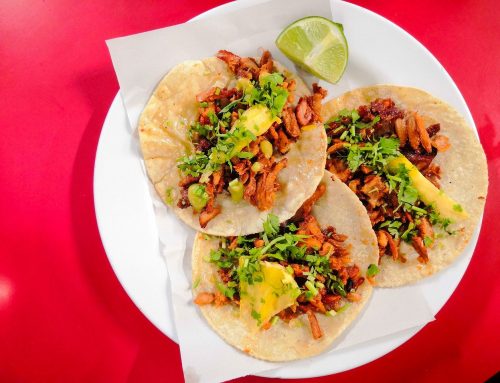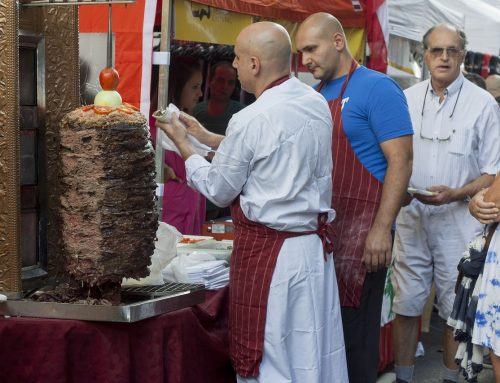It’s a simple fact: In order for your business to grow, you’ll need to eventually stop trying to handle 100% of the cooking duties yourself, and learn to delegate responsibility for some tasks and some dishes to other capable, qualified people, who you can trust to execute your vision consistently without burning your kitchen to the ground. Today, I’m going to take you through the steps to hire a line cook without experience.
In a high-end commercial kitchen, the different tasks of various staff members are broken down into a hierarchy of very specific tasks. Fancy restaurants will have dedicated teams members whose only functions are, for example, to blanch vegetables (called a “legumier,”) or scoop ice cream into precious chilled dishes (a “glacier”).
But we’re guessing that if your restaurant or food truck is ready to hire line cooks with such specialized skills, you probably don’t need this guide. Instead, we’re going to focus on hiring that first (or second) line cook for your establishment, the person that will help ease the burden of some of your responsibilities and, with luck, develop into an indispensable member of your team.
First, let’s get some of our terminology squared away. You can also jump straight to the section of content most applicable to your situation below.
Line Cook vs. Prep Cook vs. Short Order Cook

Before starting the search for your next “beast mode” employee to step in and save service when the tickets start rolling in, it’s important to know exactly what you are looking for. In the restaurant business, the terms Line Cook, Prep Cook, and Short Order Cook are sometimes used interchangeably and incorrectly. Let’s take a quick look at the functions of each.
Line cooks make up the bulk of most restaurant cooks. Though they may work in a specific station in higher-end restaurants with whole armies of staff, they also can perform almost any task in the kitchen at a moment’s notice. Line cooks are typically already skilled and experienced, and their ranking in the kitchen is based on that experience.
Free Tool: Menu & Recipe Cost Template: Download Free Spreadsheet
Prep cooks tend to handle many of the less glamorous kitchen tasks, usually in the service of making a line cook’s job easier. Prep cooks can be expected to chop produce, portion ingredients, or otherwise keep a line cook working more efficiently by prepping ingredients for them. Prep cooks are typically inexperienced and new to restaurant work, and their positions help them learn the basic skills of working in a commercial kitchen environment.
Short order cooks tend to be less skilled than line cooks in terms of technical ability, but they are often hired for one major area of excellence: Speed. Short order cooks assemble quick-service meals that may require less technical skill, but which need to be prepared quickly and under pressure. Short order cooks are a great fit for burger places, diners, or simple neighborhood breakfast places.
What Makes a Rockstar Line Cook?
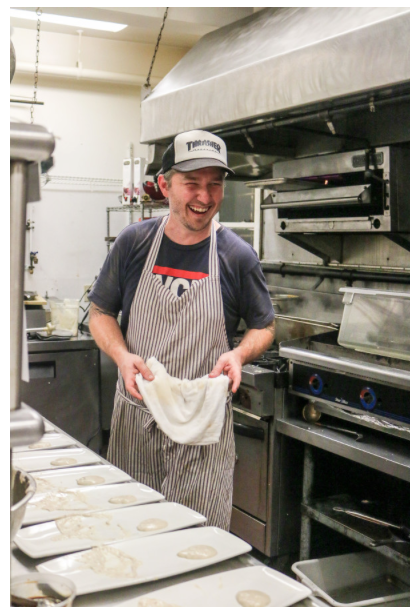
Does this look like a rockstar line cook?
For the purposes of this guide, let’s make a few assumptions. First, you don’t have an army of staff already in place, whereok. you’re looking to simply fill a slot. Let’s assume that your new line cook hire is going to be one of the foundational members of your growing team. Let’s also assume that, like almost everywhere in the restaurant world these days, finding and retaining staff is difficult. What are some of the qualities you should look for in your new hire?
First and probably foremost, a line cook needs to show up. It may seem like a simple requirement, but finding a reliable line cook can be challenging; you need to find someone who will show up to every scheduled shift, and ideally not too crippled by hangover to perform to the best of their ability. No-shows are a rampant problem in this business, and the last thing you need as you’re gearing up for a frantic night of service is a last-minute gap in service coverage.
Related Reading: Cooking is My Passion. Should I Start a Restaurant?
Line cooks need to be able to “work clean,” maintain high levels of organization, and perform well under pressure or when things start to go off the rails in the kitchen. Great line cooks consistently keep their stations clean and tidy, keeping ingredients and tools in order and surfaces wiped as they work.

Outside of Ancho Honey.
They need to plan ahead to anticipate needs, since stopping mid-service to chop a bunch of onions can quickly derail the flow of the kitchen. Finally, when tickets begin to pile up, good line cooks steadily and calmly work through the problem, while consistently turning out high-quality food that meets your standards, without stomping around and throwing frying pans at the dishwasher.
Ideally, line cooks should be passionate about producing your food and working at your business. Beware of “burned out” line cooks that show up simply to collect a paycheck, who don’t care about the food you’re producing, and who may cut corners on things like prep and plating.
Inspire a culture in your kitchen that makes your line cooks proud to work for you; this can be accomplished with a decent pay rate, consistent scheduling, perks like staff meals, or a combination of all of the above (more on this later).
Finally, and this is kind of a tough thing to quantify, but you need to find a line cook that can kind of get inside your head. If you’re going to be working in the kitchen alongside your new line cook, finding someone that can quickly learn your style and anticipate your needs can be a godsend.
Where did you put those chopped scallions? They’re right there in front of you, because your line cook identified that you were running low and replaced them without being asked. Need an extra three minutes on a sear for a table that’s already been waiting too long? Your line cook will wordlessly stall the components of the dish he or she is working on, ensuring that everything hits the plate at the same time.
This kind of telepathic connection with your line cook can be rare and difficult to find, but once you have it, it’s hard to imagine how you ever functioned in the kitchen on your own.
How to Hire a Line Cook with No Experience
Related Reading: How I Opened a Restaurant with No Money and a 540 Credit Score
Next, craft a detailed “help wanted” ad to post on Facebook and on your local online job boards. Remember, the more specific you can be about your needs, the better qualified your applicants will be. You’re trying to both attract applicants, as well as weed out people that aren’t going to be a good fit, before you invest time interviewing them. Make sure to include:
The compensation you’re prepared to offer, as well as any potential benefits (such as paid time off, paid sick time, health insurance, or employer 401k contributions). This will let potential employees know right away whether they can afford working for you.
The hours and days you’re looking to fill. This is particularly important for part-time workers, who will want a consistent schedule with regular hours and days.
A clear description of the job. “Line cook” isn’t going to cut it; that term can mean too many different things to different people. Instead, list out some of the responsibilities your new hire will be responsible for taking on, as well as whether or not your new hire will be expected to interact with the public. (Some people can do this, and others, frankly, can’t.)
Any compelling employee perks. This can include staff meals, discounts, a shift drink, or anything else you can offer potential employees to make your business a place they want to spend their time.
Opportunities for growth. Most prep and line cooks are always looking for the chance to grow, whether it’s in developing new skills, or potentially a promotion within your kitchen. Include any training you’re willing to provide (such as ServSafe certification) to further incentivize new hires.
Sample Line Cook Job Description
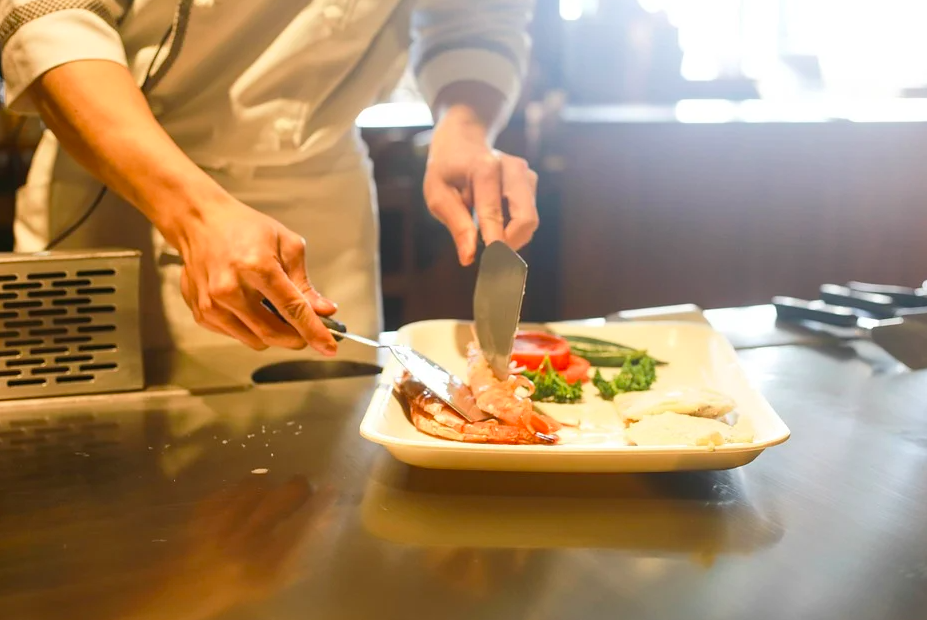
Most line cooks don’t have a culinary degree.
Here’s the job description I recently posted online for my restaurant Ancho Honey in Maine. We serve a lot of specialty hamburgers at my restaurant so the skills required for a line cook aren’t overly complex. Be sure to edit this job description to match the desired skillset of your next employee.
Don’t forget to list the requirements beyond cooking to make this job description accurate. This will help make sure the employees expectations about the role are accurate. As a small restaurant owner, a line cook is going to need complete a wider range of tasks than at a larger restaurant. Some employees will find this sort of role more interesting while others won’t want the expanded responsibility.
Attention Founders: Download our food business startup kit with business canvas, startup spreadsheets, and exclusive interviews.
Also, be sure to advertise any unique aspects of the role. For example, I have a frequently rotating menu that provides chefs with the opportunity to be creative. If they have menu ideas, I’m happy to test those ideas out. For some cooks this distinct work difference will make things more exciting.
####
Maine’s most innovative takeout and delivery concept Ancho Honey is hiring a line cook to join our team. If you’re looking for a position where you’ll have the opportunity to cook a wide variety of items and put your own twist on a restaurant menu then this is the opportunity for you. We are looking for fun and energetic people to join this exciting mission of serving our community. Apply now!
Responsibilities:
- Cooking meals that are made to order.
- Stocking the commercial kitchen. Unloading supply truck.
- Food prep. This can include chopping onions and stocking our case of ready-made meals.
- Ongoing cleaning.
Requirements:
- Positive attitude and willingness to learn.
- Must be able to stand for long hours and lift 30 pound boxes.
- Prepare food with accuracy. Ability to adapt.
- Comfortable working in a fast-paced kitchen.
- Successful completion of ServSafe certification.
- Culinary school diploma is not required.
Compensation depends on experience. We are happy to train the right team member. We provide free meals with every shift. Contact 281-838-8281 or send us an email to learn more about the application process.
####
Evaluating Resumes and Applications

I can’t believe this guy is in charge of evaluating resumes.
Now that you’ve got a pile of potential applicants clogging up your email inbox, it’s time to figure out how to thin the herd to a manageable group of applicants. You can immediately toss out any applicants whose salary demands exceed your budget, or whose available hours don’t line up with your needs.
Applicants who aren’t of legal age to work in your state (you’ll be amazed at how many of these you receive) can get sorted straight to the “no” pile. In our business, we also reject applicants who have a stated inability to work with the public. In our small restaurant and open kitchen, everyone needs to be able to interact with customers sooner or later, and we don’t need some snarling wannabe kitchen commando leaving our guests with a negative impression of our business.
In addition, you should also be looking for the following:
- Relevant experience in similar restaurants, or establishments you respect and admire.
- Long periods of continuous employment in other restaurants or food trucks; this can be a strong indicator of a candidate’s overall reliability.
- Any special skills or certifications.
- Some sort of formal culinary training can be a nice bonus, but is certainly not required.
The Interview Process
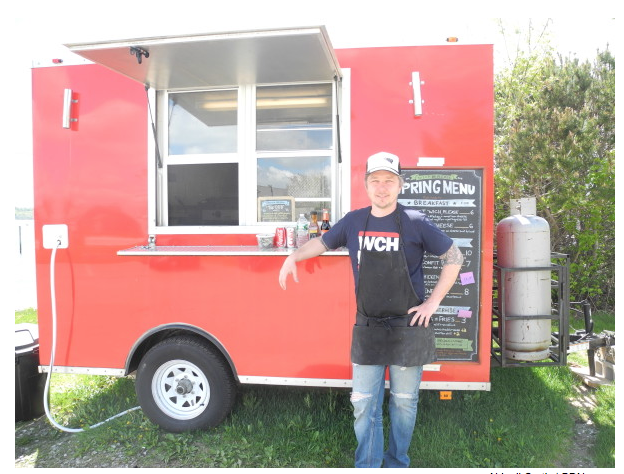
Outside my food trailer.
Once you’ve got a handful of job candidates lined up, it’s time to schedule interviews and start evaluating your prospects in person. Depending on the style of your restaurant or food truck, this can be as formal or informal a process as you choose to make it. In general, here are some of our favorite questions to ask a job applicant, as a jumping off point for conversation:
- Have you eaten at our restaurant or food truck before? What was it like for you? How would you improve the experience?
- When you’re at home noodling around in the kitchen, what’s your favorite thing to cook for yourself, and why?
- How can the skills you bring help to make our kitchen run more efficiently, safely, and/or smoothly?
- How do you respond under pressure? Describe a high-pressure situation that you have found yourself in, and what you did to manage that stress.
- What do you look for in an employer? What can we do to help keep you happy and stable in your job?
Remember, particularly in small kitchens and in food business startups, you are going to build a relationship with whomever you hire quickly, and will learn to depend on this person, as well as spend many hours of your life with them.
While skills and experience are always something to look for in a job candidate, you should also be hiring the person and the personality; many of the skills you are looking for in your new hire can be trained and taught, provided you’re working with a person you don’t want to throw out the window within ten minutes.
Sometimes, the alignment of compatible personalities is every bit as important as technical ability or know-how, and being flexible in the skills you require can land you with a loyal, trustworthy employee who you won’t mind sharing huge chunks of your time with.
How Much Will it Cost to Hire a Line Cook?
According to PayScale.com, the average hourly pay for a line cook is $12.29 per hour. The high-end for this position is $15.79 per hour and 9.37 per hour for entry-level line cooks without any experience. Based on the hourly wages, the gross annual salary for line cooks is between $19,489.60 on the low end and $32,843.20 on the high end.
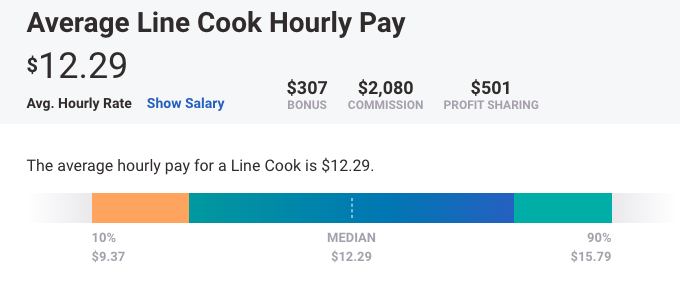
The hourly salary for a line cook in the United States.
These wages are dependent on your locations market rate to hire a line cook. If everyone else in your city is starting at $13.00 an hour for line cooks, you’ll want to make sure your compensation is competitive to attract the best and brightest.
Keep Your New Staff Member Happy and Coming Back

Happy employees lead to happy customers… hopefully!
In the food business, attracting good team members in the kitchen is only half the battle: You’ve got to figure out how to hang onto them, as well. Remember that the members of your kitchen staff are people, just like you, who have many of the same unique needs that you do. They crave stability from you as an employer, the same way you expect consistency from them.
You can hold up your end of the deal by working with individual staff members on moving shifts or hours around to accommodate their personal lives, maintaining a fair sick call or no-show policy, and paying them a decent wage, either hourly or with additional creative approaches such as tip sharing or “kitchen appreciation” fees tacked onto customers’ bills.
Any little perks you can offer that won’t dramatically impact your bottom line can go a long way in keeping your employees happy. Offering a “shift meal” after a certain number of hours worked, scheduled breaks, or the occasional smoke break here and there can work wonders for morale.
Related Reading: How I Converted a House into a Fully Licensed Restaurant (Part 1)
For smaller teams, make an effort to work alongside your staff, tackling unpleasant tasks in the same way you would expect them to tackle them. Raccoons or wharf rats scatter garbage all around the dumpster? Get out there and help them clean it up. Dish room piling up with mac-and-cheese caked hotel pans? Scrub a few of them when you have a little downtime. Sharing in their struggles will make you appreciate the roles they each play, and they’ll be glad to see you making the same investment in your business that you’re asking them to make each day.
Most importantly (and I can’t believe how many owners and managers overlook this one), make sure to thank each member of your staff, every single day, after every single shift. As someone who has been both an owner and an employee, I can’t stress the importance of this highly enough.
Because no matter how fairly compensated you think your staff may be, no matter how well they’re paid, what they’re pulling for tips, how many shift drinks you allow them, or how many incredible staff meals you cook them, none of these things compare to a well-timed, “hey, thanks for the help today. You really did a great job.”
We ask for a lot from our staff, multiplied many times beyond what can be covered by an hourly rate or a full tip jar. We ask for not just physically challenging work in sometimes unforgivably harsh environments; we ask for loyalty to our brand, an unflagging commitment to performing every given task to the maximum possible extent of someone’s capability, and for help executing the very vision that drives our entire food truck or restaurant dream.
Our employees are our lifeline to the public, our connection to our customers, our boots-on-the-ground front-line soldiers that get it done every single day, and for that, we should remember to show our gratitude.


